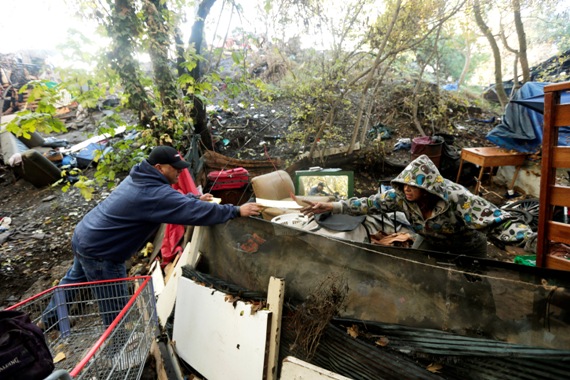Working but homeless
Why some people have jobs .....but still can't find homes

People who have jobs but can’t find homes: Why does it happen? A story out of Tulsa yesterday said one in five homeless people there are employed at least part time.
Robin Smith of the Economic Security Corporation is the president of the Homeless Coalition in Joplin.
She says this area’s “point in time” census, which counts homeless people at shelters, living in their cars, homeless camps and other areas, does not ask about employment. Even so, the same phenomenon occurs in Joplin.
Why are some working people homeless?
“Many who do work have very low wage jobs and cannot afford rent — or they can’t afford all the other things that come with finding housing for the first time,” Smith says. “These are things like rental deposits, utility deposits and paying off old bills before you can get a new bill put in your name.”
She says many landlords run credit checks and if your credit is bad, they may not accept you.
One simply reality is that housing costs are expensive.
“Rents have gone up in our area since the 2011 tornado,” Smith states. “We lost a great deal of affordable housing in that storm, much of which has not been rebuilt. Much of the housing that has gone up so far is not affordable to people with very low incomes.”
She says some people are homeless because they have felonies. Many corporate landlords will not take people with past felonies.
(Corporate landlord is a term for apartment complexes that are run by big companies, vs. the mom and pop type landlords who have one or two rental properties).
Past misdeeds can also get in the way of people with jobs who want to find housing.
“Registered sex offenders have a VERY hard time finding housing but may still be working a job,” she says.
Smith says there are also people who are referred to as “sheltered homeless” who are those who are living in a homeless shelter. Many times, they are working or find a job while they are still in the shelter.
The Economic Security Corporation offers one way out through “CHANCE” classes. The acronym stands for “Comprehensive Home Assistance for New Career Employment.”
Each participant is required to attend an eighty hour workshop which teaches job related skills including: job search, filling out job applications, resume and cover letter preparation, interview skills, and budgeting. Other topics covered include; local job market information, problem solving and conflict resolution on the job.
“All of the clients that attend the CHANCE class are homeless,” Smith says. “Most find work and then get housed either on their own, or through one of the housing programs in the community.
She has high praise for the effort.
“It really is a unique program that assists homeless persons by providing life skills training they need that is directly related to employment.”
(Full disclosure: Newstalk KZRG reporter Steve Smith is the spouse of Robin Smith.)



